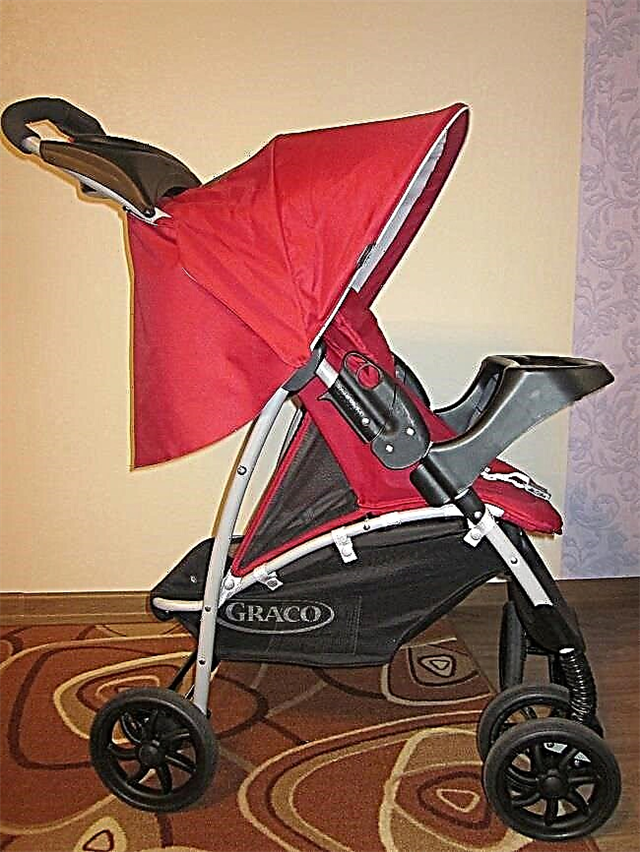Physical activity is essential for children of all ages. For many, sports activities, such as joining a soccer team or doing gymnastics, are fun ways to keep them active in later adulthood.
The benefits of playing sports
Organized sports will help your child grow in many ways. Various types of sports activities enable children:
- learn and master sports skills;
- communicate with the team;
- challenge yourself in a safe environment;
- learn the value of exercise and the challenge of competition.
 And on top of that, sports provide children with the opportunity for active recreation.
And on top of that, sports provide children with the opportunity for active recreation.
Exercising will leave less time for the child to watch TV programs. TV and kids playing sports are incompatible.
But before enrolling your kids in the sports section, consider the age, personality and abilities of each child to ensure that participating in sports is a positive experience for everyone.
To get the most out of any sport, children need certain basic skills. And some of these skills depend on the age of the child. If the willingness to acquire them is not yet ripe, children may get upset, and further desire to play sports will disappear.
Basic skills that will enable a child to engage in a particular sport
Learning skills like throwing, running, and jumping is a normal process. Children master each skill slowly, some learn faster than others. By the time your child is 3 to 5 years old, they will have mastered some of these basic skills.
To play a particular sport, children must learn to combine these skills (for example, running and throwing at the same time). This will not happen until the child is 6 years old.
When the child is young, sports can be adapted to make it easier to play.
For instance, You can:
- use adapted equipment;
- often change roles or positions;
- make games and exercises shorter;
- making the game fun to keep your child engaged.
When should children start playing sports?
If you intend to send your child to one or another sports section, think about how emotionally and physically he is ready for classes.
 If the baby is too young or not ready, it will be unpleasant for everyone, which can turn the child away from sports forever.
If the baby is too young or not ready, it will be unpleasant for everyone, which can turn the child away from sports forever.
Although there are sports programs designed for preschoolers, it is not until the ages of 6-7 that most children develop the physical skills and attention needed in many sports.
Preschoolers can throw and run, but it usually takes some time before they can combine these skills and understand the rules of the proposed game.
This does not mean that children should not play sports when they are very young. Sports can be fun for toddlers and preschoolers, but the game needs to be less competitive and more educational so that the young child can have fun while being active.
So even if small children accidentally score an own goal or play the whole game chasing butterflies as long as they like it, everything is fine.
If you decide to enroll your 5-year-old child in a section, be sure to choose one that will bring pleasure to the child and develop his basic skills.
Encourage your child to play sports that he likes, but also encourage him to do different sports as needed. This will help him acquire various skills.
How do I know if my child is ready to play a particular sport?
Below are the skills that children usually already have at an early age and the types of physical activity they can do.
At the age of 3 to 6 years, the child can run, jump, throw, keep balance. It is difficult for him to track the direction and speed of moving objects. Concentration of attention for a very short time. Learns better by copying others.
Skills to focus on during this age period: Learning basic skills, fun play. Learning new exercises is more important than competing.
Suggested actions: running, somersaulting, throwing, catching, riding a tricycle.
 When choosing sports for children, consider the unique character of your child. Some children are more into team sports, while others are more inclined towards activities that emphasize individual effort.
When choosing sports for children, consider the unique character of your child. Some children are more into team sports, while others are more inclined towards activities that emphasize individual effort.
There are sports for everyone, from basketball and football for team-oriented kids, to karate, fencing, tennis, swimming and dancing for kids who prefer to practice individually.
Don't be surprised if it takes more than one try or several seasons to find the sport that's right for your child. It often takes time for children to figure out what activities they enjoy.
Sports for boys and girls
In preschool age, most sports are suitable for both girls and boys. At an older age, sports for boys and girls may differ due to anatomical and physiological characteristics.
What sport should the girl go to? More suitable for girls:
- gymnastics;
- swimming;
- figure skating;
- Horseback Riding.
Which sport to choose for a boy? Boys are more suitable:
- gymnastics;
- football;
- skating;
- oriental martial arts.
Some children are simply not interested in team sports, but they can keep fit by participating in other physical activities that do not emphasize competition. Regardless of which they choose, children should be physically active for at least one hour a day.
Important conditions for sports
 Before starting classes, children must undergo a medical examination.
Before starting classes, children must undergo a medical examination.
Those with certain medical conditions, visual impairments, hearing impairments, or other disorders may have difficulty playing sports. In rare cases, a doctor may discover an undiagnosed condition that will affect athletic performance.
While you should share your preferences with your children, getting them to play the sport that their parents once enjoyed is not a good idea.
As your child tries different sports, stay involved.
pay attention to the following factors.
- Safety. Does the coach require players to follow the rules and use the proper safety equipment? Do players have time to warm up and cool down before and after each training session or competition? In hot weather, does the trainer pay attention to hydration, humidity and temperature? Are children being taught the correct movement and body position? Is the coach mindful of concussion prevention? Monitor these aspects.
- Training style. Attend workouts or talk to a coach to determine your child's attitude towards class. How much does each child play and how is play time determined? If the coach is constantly yelling at children or only allowing the most experienced players to play, your child may not like it.
In general, be positive. Highlight the child's efforts, improvement, and enjoyment of victory or personal work. If your schedule allows, be sure to attend events and workouts.
When children are interested in sports, it is important to think about how exercise and play can affect them and your daily life.
- How does this affect the amount of time your child has for things like homework, meeting friends, and other activities? You can get a schedule of activities and games and schedule a typical week on the calendar with your child.
- It is important for children to have time to relax, be able to think creatively and play freely when they are not doing something else. This will give them the energy they need for any kind of activity.
- How will this sport affect the rest of the family's plans? Many groups train and play only on weekends, which can be a problem if your family enjoys spending weekends together.
- If you have more than one child playing sports, how will you get them to the training site?
What if the child does not want to play sports anymore?
There may come a time when the child wants to quit playing sports. If a son or daughter comes to you with this question, try to find the reason. This may be due to something frivolous and removable. For example, with a bad form fitting.
Or there is a more serious problem. For example, a child feels uncomfortable with a coach or children in a team. It is also possible that the child does not like sports.
Can children be allowed to quit playing sports?
If your child is part of a team that depends on their involvement, you can explain the importance of surviving this season. If not, ask yourself if you would like your child to quit exercising. Think about the consequences.
 If the child is overwhelmed or unhappy, leaving may be the right decision. But it is still important for children to be physically active on a daily basis, even if they stop playing sports.
If the child is overwhelmed or unhappy, leaving may be the right decision. But it is still important for children to be physically active on a daily basis, even if they stop playing sports.
If your child is not interested in sports, look for other physical activities. Better are those that you can do throughout your life.
You can ride bicycles, play in the playground. Encourage active time with friends and their outdoor games.
These are general guidelines that should be considered. Children mature at their own individual pace and develop their unique skills at different times, so your child's emotional and physical maturity needs to be considered before starting the sports season. It makes no sense to force children to play sports if they do not enjoy it.



